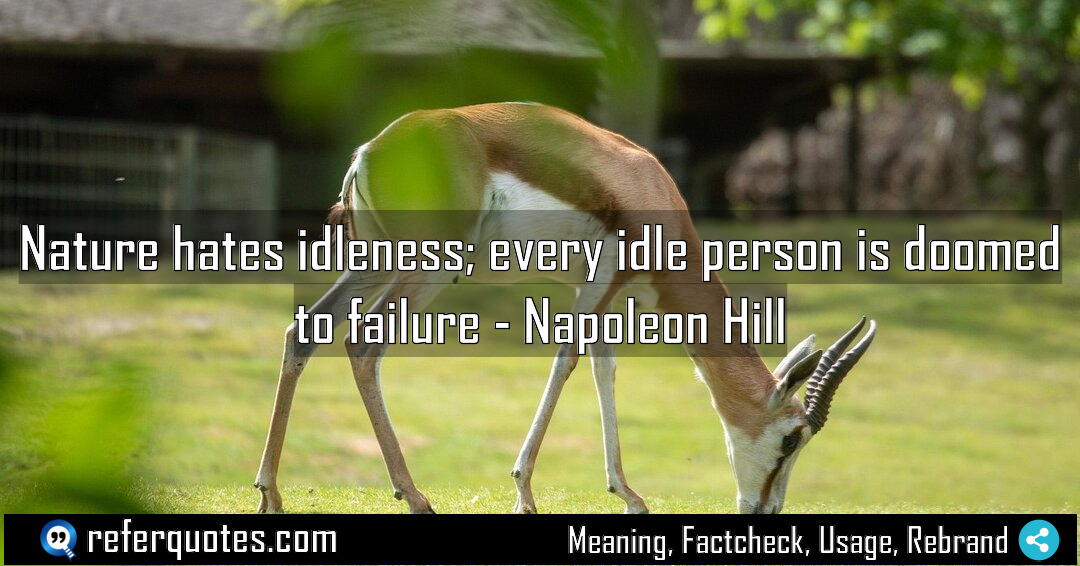You know, when Napoleon Hill said “Nature hates idleness,” he was pointing to a fundamental law of success. It’s not just about being busy, but about the momentum that comes from consistent, purposeful action. Let’s break down why this principle is so powerful.
Share Image Quote:Table of Contents
Meaning
At its core, this quote means that inaction is a violation of a natural, universal law. Stagnation leads to decay, while action creates growth and opportunity.
Explanation
Look, I’ve seen this play out so many times. It’s not that nature is vindictive. It’s just… impartial. Think about a garden. Leave it alone, and what happens? Weeds take over. It doesn’t matter how fertile the soil was. Inaction has a consequence.
Now, apply that to your career, your skills, your business. When you’re idle, you’re not just standing still. You’re actually falling behind. The market moves, technology evolves, your skills get rusty. It’s a law of physics, really—an object at rest tends to stay at rest, and it takes a tremendous amount of energy to get it moving again. But an object in motion? That’s where the magic happens. Momentum builds on itself. Small actions lead to bigger opportunities. Nature rewards movement and punishes stagnation. It’s that simple.
Quote Summary
| Context | Attributes |
|---|---|
| Original Language | English (3669) |
| Category | Success (341) |
| Topics | effort (77), failure (52) |
| Literary Style | didactic (370) |
| Emotion / Mood | calm (491) |
| Overall Quote Score | 77 (179) |
Origin & Factcheck
This gem comes straight from Napoleon Hill’s 1928 foundational work, The Law of Success, which he published in the United States. It’s often misattributed to other self-help gurus or even ancient philosophers, but the phrasing is pure Hill. He was building on principles he learned from Andrew Carnegie, codifying the habits of highly successful people.
Attribution Summary
| Context | Attributes |
|---|---|
| Author | Napoleon Hill (84) |
| Source Type | Book (4032) |
| Source/Book Name | The Law of Success (47) |
| Origin Timeperiod | Modern (528) |
| Original Language | English (3669) |
| Authenticity | Verified (4032) |
Author Bio
Napoleon Hill (1883–1970) wrote influential books on achievement and personal philosophy. After interviewing industrialist Andrew Carnegie, he spent years studying the habits of top performers, which led to The Law of Success and the classic Think and Grow Rich. Hill taught and lectured widely, promoting ideas like the Master Mind, definite purpose, and persistence. He collaborated with W. Clement Stone and helped launch the Napoleon Hill Foundation to preserve and extend his teachings. His work continues to shape self-help, entrepreneurship, and success literature.
| Official Website | Facebook | X| Instagram | YouTube
Where is this quotation located?
| Quotation | Nature hates idleness; every idle person is doomed to failure |
| Book Details | Publication Year: 1928; ISBN: 978-1-956134-21-1; Latest Edition: 2021, 1104 pages. |
| Where is it? | Lesson 5: Initiative and Leadership, Approximate page from 2021 edition: 214 |
